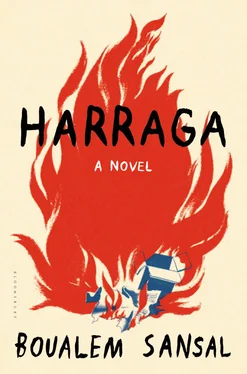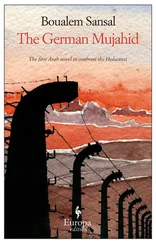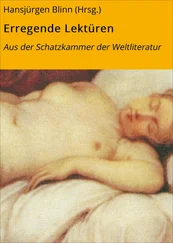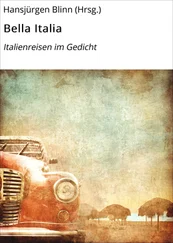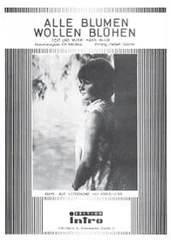‘…’
‘That doesn’t matter, treatment is treatment even if it’s virtual.’
What can you expect of the dead? Vague advice, antiquated observations, a new hash of old broken dreams, pointless suggestions, out-of-date medications. I can’t help but be sceptical of such spirits.
I’m very fond of my ghosts, but only when everything’s fine. Right now, I find them tiresome. And upsetting. Not one of them asked about Chérifa, or barely. She is a stranger to this house, she has no roots within these walls, they cannot feel her presence and so on and so forth. Forty-two days she spent here, that’s two days more than the official period of mourning. One of these days I’ll call in the undertakers and good riddance to them all — bone idle, the lot of them. And chauvinist to boot! Where are their wives, their children, their sisters, their mistresses, the maids? Don’t they have the right to come back and haunt me too?
I rushed to Papa, to Maman, to Yacine. I opened up to them. Were they sympathetic? No, they blamed me for letting Sofiane leave and for taking in some girl off the streets. Papa doesn’t like the way I look at things, he’s a true Kabyle, meaning he’s obtuse. All Maman ever does is sigh, Papa speaks for both of them. And Yacine doesn’t give a damn, just like when he was alive. I reminded them how Maman used to take in stray cats, and always the ones with mange or consumption, how Papa was constantly searching for the comrades he’d lost during the war and afterwards, poring tearfully over the newspaper, how Yacine’s only love was a clapped-out old banger… It was a waste of breath, a streetwalker is a streetwalker.
I am alone; truly, horribly alone.
Dear God, what has become of Chérifa’s father? I suppose his witch of a wife has finally got him under her thumb, or turned him into a filthy Islamist. He probably doesn’t think any more. Poor man, he has lost his daughter, lost his dignity.
What was it that I said, what terrible name did I call her? I’m sorry, Chérifa… I love you… where are you?
I kept wondering whether our lives truly belong to us or whether they belong to others, to those who gave us life and those who have taken it from us. I don’t know, but I have a sort of answer: when we alone are truly masters of our lives, then we are truly alone. Or we are dead.
Three months passed like this in a kind of madness. I didn’t see it coming. Because I’m level-headed, or at least I was, I took on the world, I emancipated myself. It was as I thought I was exalted by suffering that I sank into delirium. Is solitude playing tricks on me? Perhaps nothing is happening but for the days passing and me muttering to the empty air.
You quickly fall apart when you lose the thread of time. Living is such a dangerous occupation.
Let not sorrow distract you.
Let not emptiness dazzle you.
It is always by some oversight
That we lose life.
To think that I wrote those lines!
I’m not a believer but I can’t help wondering what God is waiting for before coming to my aid.
The day was not like any other
The ground gaped
Or the sky blazed
The world turned upside down
The Hominids fled to improbable shelters
Followed by animals consumed by the flames.
And someone said:
‘God, what is all this?’
Thirty million years later,
We echo that mysterious cry
Each time the sky falls on us
Each time the ground gapes beneath our feet.
The only piece of news: God finally exists.
He has colonised the earth
The heavens have long since been his demesne.
And every day, he rips open our houses
Or has roofs collapse on our heads
For the pleasure of watching us beseech
As we flee for the shelters
And so, God: I BESEECH THEE!
Serendipity has now arrived, come to twist the knife in the wound. It appeared via Arte , a humanitarian television channel if ever there was one. Ever since Chérifa’s disappearance, I’d forgotten about my faithful friend the television which had become shrouded in dust, but on that particular evening our friendship was accidentally rekindled. A gust of wind and the television suddenly came on by itself, or as though it had something to tell me. From the very first image, I could see that the programme was about us, the landless, the harragas , the path-burners. As part of a series about Great World Suffering, Arte took us from an African village somewhere in the deserts of the Ténéré, across the sweeping plains of the Sahel all the way to Tamanrasset where the camera allowed itself a brief pause to flick through the criminal record of the Algerian government, a crucial link in the people-smuggling networks of Saharan and sub-Saharan Africa; from Tamanrasset, it zigzagged through the no-man’s-land of Algeria and Morocco, travelling by night, far from paved roads, heading steadily north-west until it arrived, scorched and weary, in Tarifa, Spain, a few kilometres from Gibraltar — which once was ‘Jabal Tāriq’ in another story — where the epilogue to this odyssey was played out. In Gibraltar we watched the policemen with their funny helmets fishing bodies out of the sea while, high up on the cliffs, a priest who supported the rights of the harragas , surrounded by tearful militants, prays with all his might to a God who refuses to listen to the poor. It is a magnificent scene. It reminded me of Roland Joffé’s film The Mission , with Robert De Niro as mercenary Rodrigo Mendoza who, after some terrible event, becomes a Jesuit. But rather than honouring God and conforming to the strict discipline of the order, Mendoza rebels and fights for the indigenous Guaraní doomed to annihilation because of some distant, nebulous issue between the Roman Catholic Church and the kings of Spain and Portugal. In the end, he is shot and killed and with him every last Guaraní tribesman while a sanctimonious new order is established all across South America. A harrowing tale filmed in majestic locations. And I thought of The Name of the Rose which depicts grim, boorish monks who go to insane lengths to orchestrate bizarre crimes in a monastery constructed like a pagan labyrinth. Do we really kill people simply because they have discovered that laughter exists? It’s appalling.
So, we were in Tarifa . Yes, among the corpses is a survivor, a young black woman several months pregnant, beautiful as the sun, no older than Chérifa but twice as tall. Her great eyes roll in her head like lottery balls in their glass cage. She doesn’t understand, she raves, she babbles, she trembles, she thrashes about, she tries to run but she barely has the strength to cling to the brigadier. A fat slob in military uniform acting on behalf of the gobernador says to the camera that the miraculous survivor will be sent back to her país as soon as she gives birth. Moron, do you even know if she has a país?
This is the end of the drama for the viewer, who can turn off the television and go to bed. But for the rest of us, for those with no country, the questions are only beginning.
I have never been so moved by a documentary, not just because it directly concerned me but because it managed to show the terrible ordeals that poverty inflicts on those who have the temerity to try to escape it. It’s never-ending: at every turn, they are hit hard enough to floor a rhinoceros. It’s rather like quicksand, once you step into it, you’re sucked down. You can struggle, scream for help or cross your fingers, but the end result is the same. The path-burners know this, they try to deny it, but gradually, as the going gets tougher, they are forced to accept it; they find they become sparing in their words, their gestures, probably even their thoughts. They trudge on like the living dead but still they keep the faith, still they head to where life is waiting: the promised land.
Читать дальше
